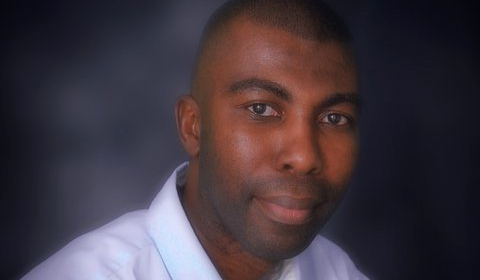We are separated by thousands of miles of ocean, several time zones and 25 years of the ATC journey. Chris is at the threshold of his ATC career, and he has agreed to share his story via an interview. Here are my questions and his responses.
We are separated by thousands of miles of ocean, several time zones and 25 years of the ATC journey. I am referring to Chris [not his real name], who agreed to be interviewed for my blog, the first of it’s kind. He is at the threshold of his ATC career, and I am now getting warmed-up with this blog.
I am grateful to have met Chris, and many others from the ATC profession, who have shared their experiences. He was ecstatic about sharing his story and I was equally anxious to interview him. Here are my questions and his responses:
1. When did you join the ATC, and what inspired to you enter?
I first joined as a trainee controller in May 2013. I’ve always been massively drawn to aviation in general. At age 12 I received 2 flying lessons for my birthday and was hooked from there. I also previously followed other career paths, but always found myself looking for something in aviation.
2. Describe the journey thus far: training and work experience.
Since joining, I have been training in aerodrome control. I’ll be following this up with an approach radar rating. I’ve also spent time at a couple of airports watching controllers using their skills and explaining their thought processes.
3. Was there any point that you questioned yourself as what you were signing up for?
I must admit the first month or so of training I found incredibly daunting. Covering so many topics at the same time in such detail was like nothing I have ever come across before. I wouldn’t go as far as to say that I questioned whether I had signed up for the right thing or not, I just knew that if I really wanted this, I would have to push myself harder than I ever have before.
4. Where are you stationed what rating/s do you have?
I haven’t yet been giving a posting, nor have i completed any ratings courses. I’m hoping to complete the aerodrome course around July time and the Approach around November.
5. Describe a typical shift, length, breaks, traffic levels, etc.
A typical shift is difficult to describe. The majority of my work time is spent either studying or in the simulators. The traffic levels vary according to how recently a new skill or type of traffic has been added, steadily increasing until I am competent and comfortable with it. Shifts are usually 8 hours long and we’re given frequent breaks to allow our minds to process the content of the previous session.
6. What gives you the greatest level of satisfaction?
Our instructors are very skilled and experienced controllers. I enjoy getting to the end of a training session feeling completely burned out, but with the instructors finding very little to criticize. These people are some of the best in the business and if I can avoid drawing too much critique that can only be a good thing.
7. How do you unwind after a shift, and how do you balance work-life relationship?
At first I didn’t do very well balancing work and home life. I’d finish generally around 4pm most days. At first I’d come home to my partner who was eager to tell me about their day at work and, along with the TV on in the background, I’d find this environment very difficult to study and focus in. I had to change this, so I found myself staying behind at college for an extra couple of hours most days, just to get the extra studying required done. Once I was home, however, it was feet up, TV on and beer in hand. I found you can easily burn yourself out if you go non-stop. Appreciate the little things in life, give yourself a pat on the back now and then!
8. This is obviously a profession where someone signs up for the long haul, but where do you see yourself in 10 years?
In 10 years time, I see myself sat in a controller position. Whilst it might sound unambitious, I have no desire to work my way in to management, especially not in the next 10 years. The lifestyle of a valid controller is pretty laid back. A good salary, with great working conditions and a great team of people to work with… I don’t think I’ll be trading that anytime soon.
9. What will you miss the most if you had to leave the ATC profession?
I think I’d miss feeling like I could make a difference. For the most part, in my experience, most of the general public have absolutely no idea what we do or how we do it. I’m sure with more exposure to our industry that could change, but perhaps a lot of people that don’t know what we do are probably happily unaware. Joe Public get’s on the plane at departure airport, lands at arrival airport and often their main concern is how long their bag takes to come out on the carousel so that they can hit the margaritas (and who can blame them!). This is often without sparing a single thought about the small international army of controllers working as a team in control towers, area centres or approach radar rooms making sure that thousands of aircraft fly through the sky daily without incident. I’m just proud to be a part of that team, whether people know we’re there or not!
10. Is flying of any kind anywhere on the horizon?
Probably. I’d quite like to have a PPL within the next 10 years. Buy myself a share in a small prop and use it to head off skiing a couple of weeks a year.
11. What advice do you have for aspiring Air Traffic Controllers?
Dedicate yourself to the training. Its a small portion of your overall career. It might seem tough at times, but the end goal is certainly worth it.
12. What ATC/Aviation application that is not available now, you would like to see developed?
Not so much an app but aviation technology in its early stages of use. Controller–pilot data link communications (CPDLC) is a vastly powerful tool and I think there is a lot more to come from its potential utilization.
13. What do you think is the most important characteristic of an ATCO and why?
Multitasking. The ability to keep your eye on several things developing at a time and integrating them.
Summary
I have no doubt that Chris will succeed and I wish him the very best. These wishes equally apply to all the other men and women that are at the start of their ATC journey.
Looking back, I am sure veteran air traffic controllers can relate to Chris’ story and smile at how far they’ve come.
Here’s an invitation to controllers everywhere to weigh in with their story. It would be interesting to see the similarity in characteristics of air traffic controllers.








